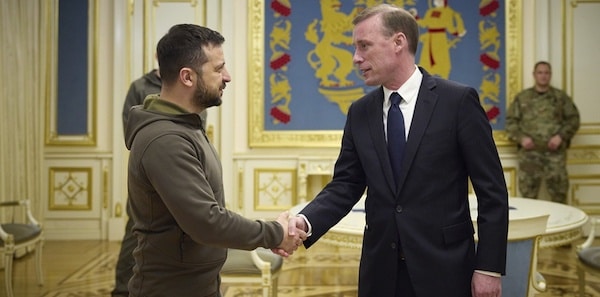THE People’s Assembly demonstration this weekend was a welcome return to the mass politics of the streets and a valuable first challenge to the austerity programme that the Tories are carefully constructing.
We must guard the flame of revolt–the convergence of anti-war sentiment and outright rejection of austerity–that drove the extraordinary 2017 election result and the mass movement associated with it.
We are in a different situation today. The crisis, revealed by the 2008 financial crash, has no long-term resolution and the war in Ukraine is reaching a stalemate.
These are grim times.
Civilians have been evacuated from the Ukrainian city of Kherson where a battle threatens to rain down further unnecessary destruction, but which will not change the military situation very much.
Much of the vacuous hyperbole about the runaway success of the Ukrainian advance has given way to a more realistic understanding that there is no likely resolution of the conflict on the terms which the Kiev government still demands.
The bulk of the Ukrainian regions now incorporated into Russia will not be returned to Ukrainian sovereignty except by negotiation and as a concession by Russia.
If the war cannot end by military victory, it can only end by negotiation and compromise. Amid the brain-dead bipartisan posturing that characterises British parliamentary politics–with anti-war voices silenced by an extraordinary Keir Starmer diktat–there is, nevertheless, a stirring of realistic thinking.
When Liz Truss took office earlier this month her defence minister said defence spending would be doubling annually to £100 billion ($107bn) compared with the present level of £48bn.
In his first act, Rishi Sunak refused to confirm the rise in defence spending.
This is a subtle repudiation of U.S. pressure for European states to ramp up military spending. It may be forced on the government by the extent of its financial crisis but it is a telling move nevertheless.
We are in a very contradictory situation with Britain insulated from shifts in European politics, a difference sharply illustrated by the narrow decision by the TUC to endorse increased defence spending.
In Italy 100,000 people have taken to the streets in a demonstration for peace. Inevitably it was shot through with contradictory tendencies that reveal the diversity of anti-Nato thinking that exists in every part of the Italian political spectrum.
Notably, Enrico Letta, the leader of the Partito Democratico, came under intense criticism for his two-faced policy which saw him on a peace demonstration but committed to ramping up arms exports to Ukraine.
In recent weeks enormous manifestations of anti-Nato and anti-EU opinion have taken place in Paris and Prague, while many similar protests in German cities have made clear a popular rejection of the energy prices that Germans are being encouraged to pay while Nato’s war is fought to the last Ukrainian.
To point out that these extremely heterodox demonstrations have included and in some cases were in initiated by nationalist and right-wing elements is simply to illustrate that there are real contradictions between the U.S. strategy and the interests of sections of European capital and that universal public support for never-ending war is absent.
Words are cheap but the statistics illustrating the difference between rhetoric and reality in the military aid given to Ukraine are telling. The U.S. has spent over $25bn, many times the amount the rest of Nato states combined. It is a U.S. enterprise to which European states have surrendered much of their independence of action.
Who, but the U.S. foreign policy establishment and the arms dealers, wants this war on our continent?

